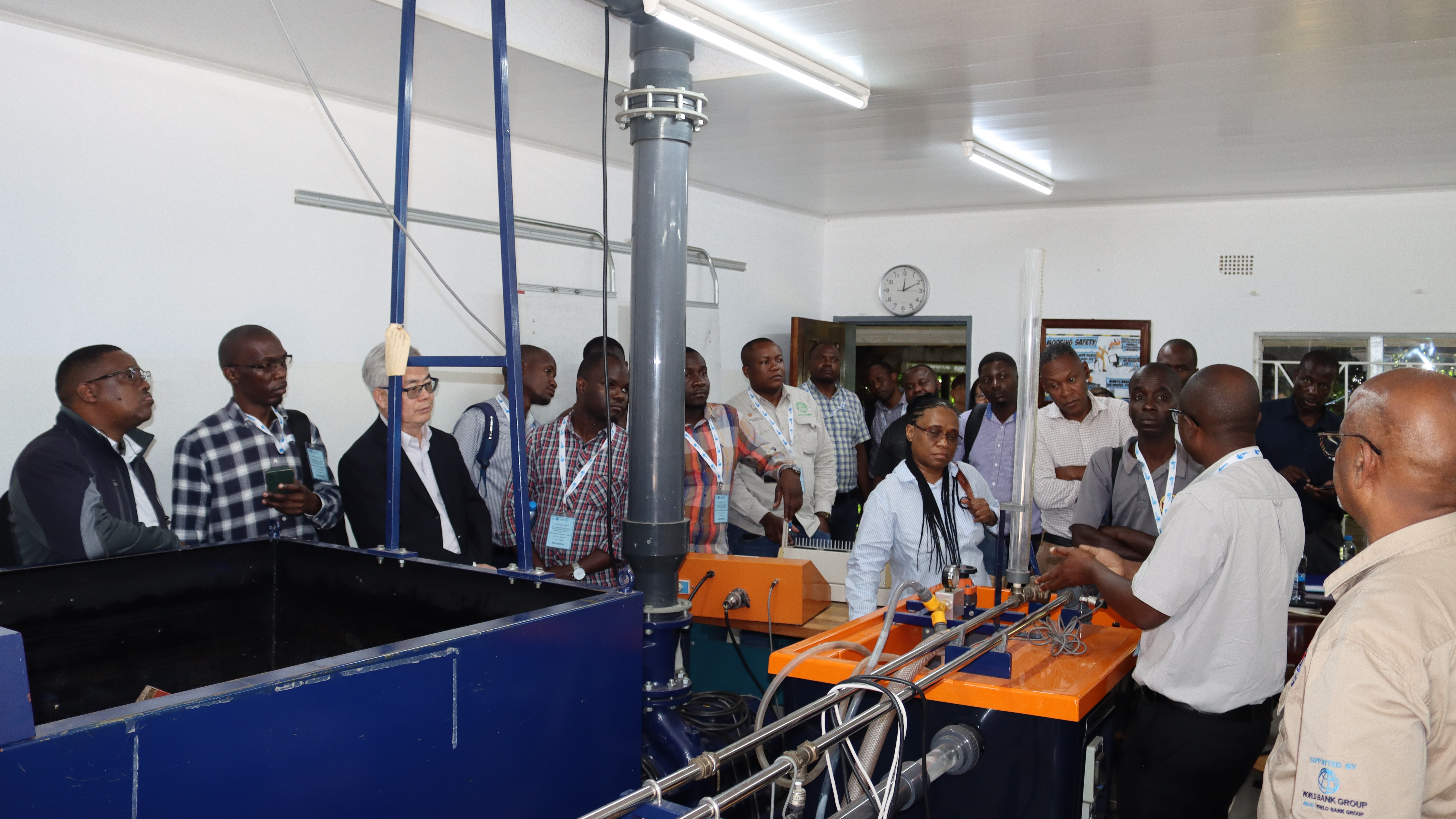Setting the standard: advancing small hydropower in Africa
26 January 2024

LUSAKA - Many sub-Saharan African countries are experiencing severe electricity shortages as a result of inadequate domestic electricity generation capacity and the high price of imported fossil fuels. In response, the United Nations Industrial Development Organization (UNIDO) is taking a significant step to transform the energy landscape in Africa.
Leveraging its two decades of experience in small hydropower (SHP) development, UNIDO is actively working with member states in their efforts to identify, establish, operationalize and maintain small hydropower plants.
As UNIDO’s Heng Liu remarked, “Small hydropower is an essential tool to promote industrial development, support rural communities’ energy needs and promote climate-smart agriculture”
The UNIDO initiative involves supporting South-South and triangular cooperation, facilitating knowledge exchange among energy experts and organizations, and helping nations acquire the necessary skills and adhere to internationally accredited standards.
As part of this initiative, UNIDO has collaborated with the International Centre on Small Hydro Power, the Secretariat of the Common Market for Eastern and Southern Africa (COMESA), and the Southern African Development Community Centre for Renewable Energy and Energy Efficiency (SACREEE) to host training sessions on small hydropower development and international standards. These joint efforts build capacities and engage with policymakers, national standardization bureaus, energy project developers, and private sector stakeholders in the Eastern and Southern African regions.
The four-day training covered an eight-module programme aligned with the UNIDO’s Small Hydropower Technical Guidelines, encompassing every stage of the small hydropower (SHP) development, from pre-feasibility to economic appraisal and maintenance.
UNIDO and its partners emphasized the urgency of establishing international SHP standards following the International Standards Organization (ISO) working agreements. These standards will be crucial for ensuring systematic designs, de-risking SHP investments, and promoting multi-purpose SHP for sustainable uses in the region. Representatives of National Standardization Bureaus participating in the training, recognized the importance of adherence to these standards and expressed a strong commitment to joining the ISO/TC-339 Technical Committee.
Reuben Gisore, Technical Director at the African Standards Organization (ARSO) said, “Standards harmonization is crucial for promoting consistency, efficiency, and safety in small hydropower development across the region. ARSO, with the mandate of ensuring conformity assessment in the framework of AfCTA, commits to join UNIDO’s efforts and will participate in cross-regional activities.”
Throughout the training, experts from diverse countries established valuable working relations, exchanged best practices, discussed funding opportunities through joint programmes, and assessed the strategic significance of SHP in the context of rural development. Participants visited the Kafue Gorge Regional Training Centre to gain first-hand insights into local SHP initiatives.
Speaking at the conclusion of the training, Mohamedain Seif Elnasr, energy expert at the COMESA Secretariat, said, “In our decades-long partnership with UNIDO and the International Centre on Small Hydro Power, we value the critical role UNIDO plays in the field of small hydropower development and COMESA will support SHP standardization and market integration.”
More about the UNIDO’s small hydropower portfolio: https://www.unido.org/small-hydropower
For more information, contact: Heng LIU